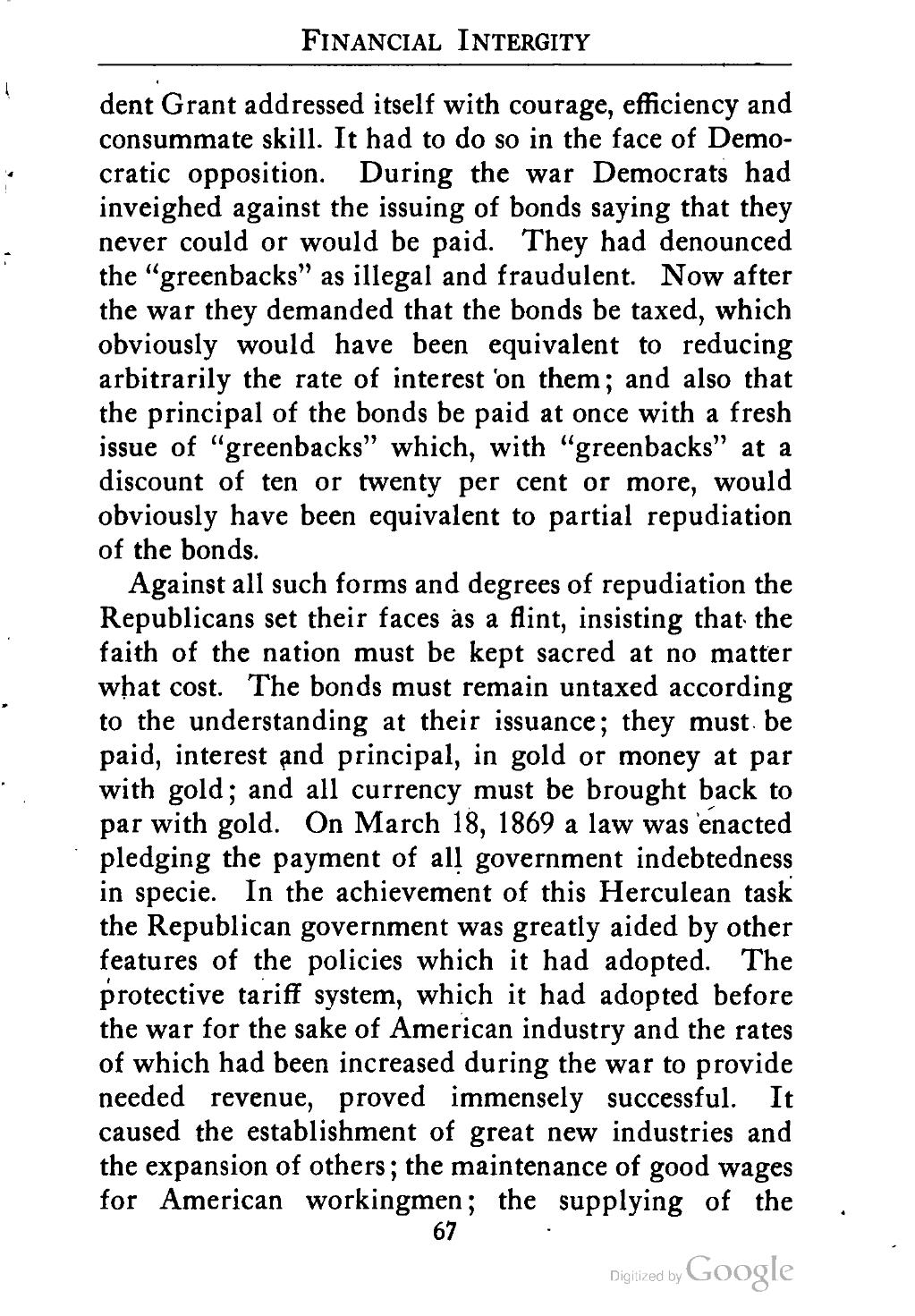Financial Intergity
dent Grant addressed itself with courage, efficiency and consummate skill. It had to do so in the face of Democratic opposition. During the war Democrats had inveighed against the issuing of bonds saying that they never could or would be paid. They had denounced the “greenbacks” as illegal and fraudulent. Now after the war they demanded that the bonds be taxed, which obviously would have been equivalent to reducing arbitrarily the rate of interest on them; and also that the principal of the bonds be paid at once with a fresh issue of “greenbacks” which, with “greenbacks” at a discount of ten or twenty per cent or more, would obviously have been equivalent to partial repudiation of the bonds.
Against all such forms and degrees of repudiation the Republicans set their faces as a flint, insisting that the faith of the nation must be kept sacred at no matter what cost. The bonds must remain untaxed according to the understanding at their issuance; they must be paid, interest and principal, in gold or money at par with gold; and all currency must be brought back to par with gold. On March 18, 1869 a law was enacted pledging the payment of all government indebtedness in specie. In the achievement of this Herculean task the Republican government was greatly aided by other features of the policies which it had adopted. The protective tariff system, which it had adopted before the war for the sake of American industry and the rates of which had been increased during the war to provide needed revenue, proved immensely successful. It caused the establishment of great new industries and the expansion of others; the maintenance of good wages for American workingmen; the supplying of the
67

